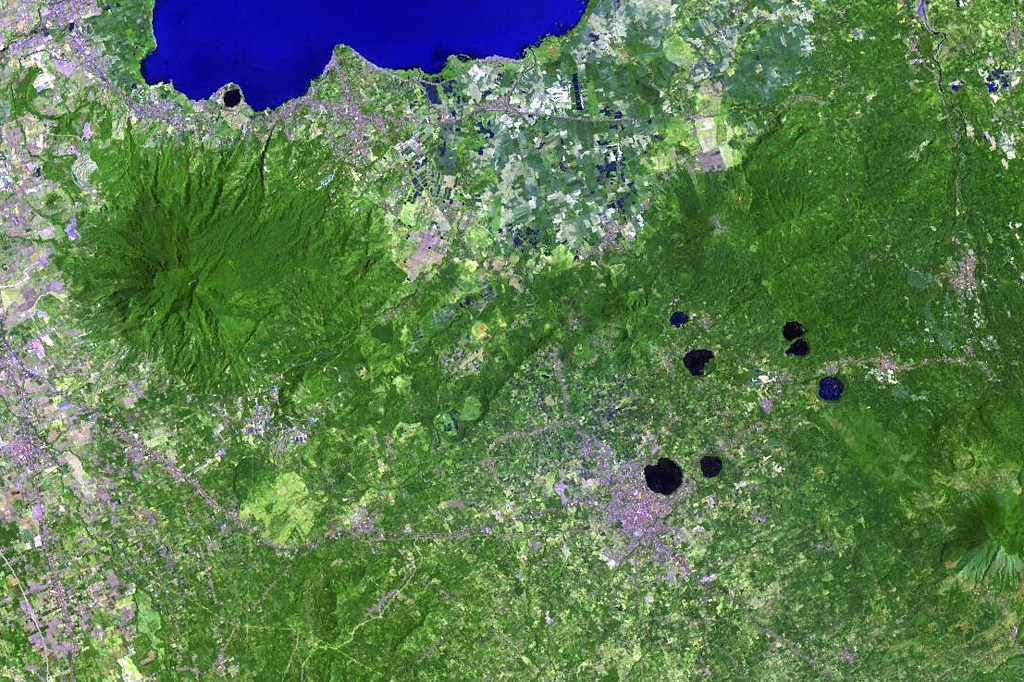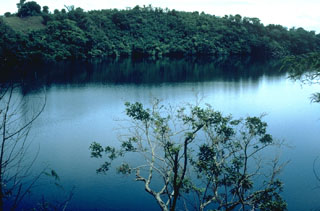Global Volcanism Program | Image GVP-11147

Lake-filled maars are common features of the San Pablo Volcanic Field at the southern end of the large Laguna de Bay (top). The monogenetic volcanic field contains a group of 42 scoria cones and 36 maars, the youngest of which contain deep lakes. The largest maar in this Landsat image is 1.2-km-wide Sampaloc Lake, immediately N of the city of San Pablo. Local legends suggest that this maar formed about 500-700 years ago. The forested volcano to the left is Maquiling.
NASA Landsat image, 2002 (courtesy of Hawaii Synergy Project, Univ. of Hawaii Institute of Geophysics & Planetology).
![]() This image is made available as a Public Domain Work, but proper attribution is appreciated.
This image is made available as a Public Domain Work, but proper attribution is appreciated.

San Pablo Volcanic Field
